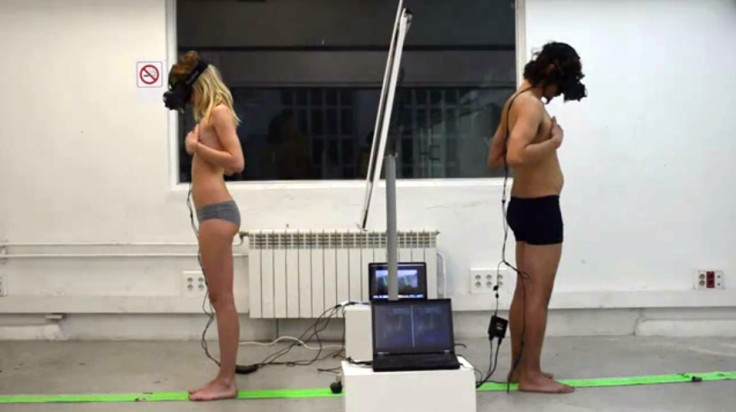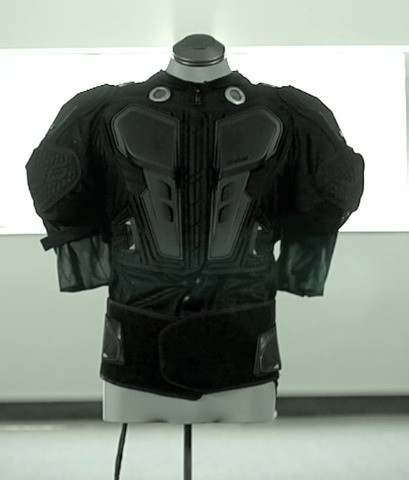Virtual reality rape: Transhumanists highlight ethical issues arising from new technology

The convergence of technologies such as virtual reality, haptic feedback and wireless connectivity raises the prospect of virtual sexual assault, two noted futurologists have warned.
These new forms of violation could arise by combining emerging devices, such as suits that provide wearers with physical sensations through haptic feedback, with existing virtual reality headsets like the Oculus Rift.
What is transhumanism?
Transhumanism is a movement that aims to use technology to enhance human intellectual, physical and psychological capabilities. This can be achieved through anything from brain implants and bionic eyes to stem cell technology and exoskeleton body suits.
"If you have a haptic suit on, and someone tapped into it and made you do things you didn't want to do, I would consider that a violation and probably equivalent to assault," Zoltan Istvan, author and 2016 US presidential candidate for the Transhumanist Party, told Australian publication Vertigo.
"This is one of the very strange issues with transhumanism.
"We're approaching an age when we're going to be rewriting a huge amount of the rules of what it means to either harm somebody, or hurt somebody, or even scare them or bother them. Clearly the controls, the security systems and the anti-hacking software will have to be much better."
Bringing the sensation of touch to virtual reality

Efforts are already under way to make virtual reality devices, such as the Oculus Rift, more realistic and lifelike by including senses beyond sight in the experience.
Bristol-based start-up Ultrahaptics has developed tactile technology that allows users to "feel in mid-air" by using an array of ultrasound speakers capable of invisibly replicating textures.
"We'll never create this complete immersion without this physical feedback," Tom Carter, co-founder of Ultrahaptics, told IBTimes UK in February. "If you don't have the sense of touch it will really break down the virtual reality experience.
"My big hope is you'll be able to put on a VR headset and reach out and touch and feel. I think this is going to be one of the most useful things for virtual reality in the future."
If such technology was integrated into virtual reality systems capable of mapping experiences through sensors, it would conceivably pave the way for people to interact physically within a virtual environment.
At present there are no legal protections against such incidents as the technology does not yet exist, however Istvan believes that society should already begin to consider the implications of its development.
Criminal law playing catchup with new technology
Fellow transhumanist Anders Sandberg told Vertigo that criminal law is often slow to react to issues that arise as a result of technological advances.
"The evil of sexual assault is that it involves violating our ability to interact with the world in a sensual manner," said Anders Sandberg, research fellow at the Future of Humanity Institute at Oxford University. "It involves both coercion of bodies and inflicting a mental violation.

"So from this perspective it does not matter much if the sexual assault happens to a biological body, or a virtual body connected via a haptic suit, or some brain implant."
Sandberg gives other examples of how technology could be used to violate someone's rights or raise ethical issues that do not yet have laws in place to deal with them.
For example, a sexual encounter could be digitally mapped and transposed onto robotic bodies that look like children or animals.
"I suspect we will become much more tolerant of many things that are currently weird and taboo," Sandberg said. "The issue ethicists may worry about is whether we would also become blase about things that should not be accepted.
"I am optimistic about it: I think that people actually do react to things that are true violations."
© Copyright IBTimes 2025. All rights reserved.






















